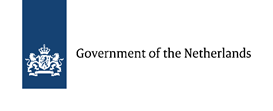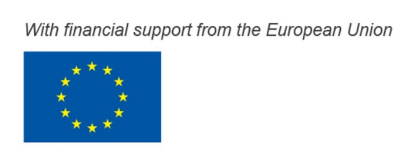Modern European Guest Workers? Problematic aspects of posting workers and the new Posted Workers Directive

Since the nineteen nineties posting of workers onto the European market has proven problematic as it involves intensive exploitation as well as a variety of unfair practices. In May 2018 the final form of the directive that aims to eradicate the major problem was approved. A question, however, arises whether the general phenomenon of temporary jobs performed by migrant workers, which also includes posting abroad, will not escalate by generating a number of problematic issues that the reform is not likely to address.
Posting of workers is a specific form of work force cross-border mobility in the European Union and the way it functions is currently subject to reforms. The efforts to regulate as well as balance free movement of services and protection of non-native workers' rights have proven challenging, as the aforementioned have not been successful, whereas the needs of the free market have triumphed. Moreover, a range of unfair practices have been revealed relating to the possibility of employing migrant temporary workers. The reforms are intended to concern the unfair practices in question, to safeguard workers' social rights in addition to introducing the same wage for the same job performed by the local and migrant workers. Posting can also function as a vantage point for observing how the EU internal market operates in general. It reflects the gap between the free market logics, i.e. free movement of workers and supply services on the one hand, and on the other, the social standards in the sending and receiving countries.
The 2014 enforcement directive has already brought an important change, since it aimed at removal of the previous legal shortcomings by means of creating a framework for social law, however, it did not discuss certain relevant aspects, e.g. it failed to cover workers’ social rights. Nevertheless, the very proposal to revise the current regulations from March 2016 has already caused a surge of criticism. It targets the alterations claiming, among others, that Central and Eastern Europe are likely to lose their competitive edge, which means that the directive supports protectionist practices of the older member states or that the companies will have to study an overwhelming number of regulations valid abroad.
Basic forms of posting and its transformations
Free movement of services, as one of the essential principles of the EU single market, is to ensure that companies and entrepreneurs can offer their services in the other EU states without the necessity to set up their company seats there. In this respect it is also possible to delegate workers abroad, with the provision that the “posted” worker is an employee sent by his/her employer to perform his/her contractual duties temporarily in a different member state. However, the posted worker continues to be part of the social system in the sending country. The regulations listed in the Posted Workers Directive of 1996 specified the minimum conditions that workers have the right to claim, including the minimum pay, maximum daily working time as well as minimum paid holiday, etc.
As for the number of workers posted abroad it accounts for only a small part of the work force in the European Union on average. In 2015 the figure showed 0,9%, a little over two million people, yet on the other hand it is possible to observe a substantial increase in use of posted workers. Between 2010 and 2015 the number of employees posted to work abroad increased by 41,3 % and between 2010 and 2016 by 69%. Furthermore, should local rather than average figures be considered, it appears that these are far higher for particular countries. Only in 2015 the number of workers posted to Germany reached an approximate 440 000. Germany was the most common destination and the majority of employees were sent from Poland, exceeding in total half a million. The employment of delegated workers mainly concerns certain sectors, mostly building industry (42%) and production (21,8%). As for the Czech Republic a new type of migration has gained prominence in the few recent years. The reason for that is that for EU non-nationals obtaining work permit for less qualified positions proves most difficult and thus delegation of employment offers an opportunity to access the local market. The Czech Republic was mainly the destination for workers from Slovakia, Germany and Poland and they accounted for 0,4% of the total working population in 2015. Nonetheless, all the given data provide a mere rough estimate, for these records concern those workers that have registered to pay social insurance or have been registered by their employers.
The Problematic Aspects of Posting Workers
Ample research including the international study performed by the Multikulturní Centrum Praha (Multicultural Center Prague) has demonstrated that employees faced similar difficulties. The problems encompass failure to receive pay, unpaid overtime, exploitation by employers, who are aware of the workers’ vulnerable position, detracting high amounts from workers’ pay for arranging employment, lack of or insufficient training for work safety. It can thus be concluded that the major problem is that posting of workers abroad supports intensive exploitation, long shifts, damage to health and disregard of work safety. Neither did employees have sufficient knowledge concerning their rights or their employment status.
Further problems emerge, for companies fail to be sufficiently informed as to their duties towards employees, or because certain companies breach the directive and establish fictitious agencies (so-called letterbox companies) delegate workers abroad. There have been registered cases of employees declared as fictitiously self-employed (for instance 40% of workers delegated from Poland to Belgium have a self-employed status, while from Slovakia as many as 75%). Another issue is undeclared work when the posted worker has no contract. In the Czech context in this respect the most common has appeared to be the case of so-called “Polish visas”. It concerned a situation in which companies based in Poland posted workers from Ukraine to perform work which was neither temporary nor matched the criteria for posting. The case was treated by Státní úřad inspekce práce (the State Office for Labor Inspection) as illegal employment.
The cooperation between the labor inspection offices in the delegating states has proven substantial in raising awareness of employees and employers. Owing to the information system for the internal market (IMI) Labor Inspection Offices can access information regarding working conditions of employees in all delegating countries as well as communicating with the inspection offices from particular member states, provide and receive recommendations at the cross-border level in addition to using IMI as an instrument for executing fines. In this respect the Posted Workers Directive has been positive impact.
Efforts for Eradicating the Problematic Aspects
In May 2018 the European Parliament passed the final form of the directive that is to respond to the aforementioned problematic areas. The new directive must, however, be approved by the EU Council and further on the member states will have two years for its implementation. According to the Commission the major concern is that the considerable mismatches between the pay that local and posted workers receive respectively means a breach of the principles of the single market. In this way not only workers are disadvantaged but the local companies as well. Hence the revision of the directive aims at respecting the rule that workers deserve equal pay for equal work. The major alteration specifically concerns pay, for no longer is only the minimum pay determined but pay in the host member state is subject to the same regulation for both posted and local workers.
Furthermore, posting should not exceed twelve months with a possible prolongation up to another six months. Afterwards the worker will be subject to all the legal employment regulations valid in the host country. Protection of the posted workers is to be enhanced: employers are to refund the costs relating to traveling, board and lodging, and the member states are to cooperate closely in order to prevent unfair practices within posting. Naturally, as far as road transportation is concerned, particular legal revisions will be introduced and by the time these are passed the regulations included in the Posted Workers Directive of 1996 will be valid.
General Problems of Work-Related Temporary Migration
Should the workers delegated abroad be viewed in a wider perspective, the matter can be treated as part of the broader phenomenon of temporary employment performed by migrant workers. There emerge a range of complications in which the aforementioned reforms cannot be wielded. Similarly to posting-related issues with the elapse of time a global increase in the amount of temporary migration can be observed.
Non-native temporary workers are granted temporary residence permit abroad and thus they can participate in the work force with the right to be paid but at the same time they might also be subject to other more restrictive conditions. The standing of the temporary workers corresponds to the phenomenon of work precarization.
It means that work patterns are subject to further transformations that involve decrease in the full time employment contracts to the benefit of part-time employment or temporary work, growth of personal and professional precariousness, loss of social prestige attached to employment, insufficient financial remuneration, etc.
This applies to migrant workers to a greater extent as in the event of economic crises they will be the first to lose their jobs. Temporary worker status also translates to loss of or a significant decrease in participation in the civic-political public life. Additionally, it prevents workers from a successful integration with the local community in other spheres than professional. Thus workers do establish bonds that link them to the new country, but numerous barriers emerge that relate to short-term work residency.
This publication has been produced as part of project “Towards stronger transnational labour inspection cooperation” (STRONGLAB), funded by the International Visegrad Fund and the Ministry of Foreign Affairs of the Kingdom of the Netherlands and Protecting Mobility through Improving Labour Rights Enforcement in Europe (PROMO) that received financial support from the European
Union Programme for Employment and Social Innovation ‘EaSI’ (2014-2020).
Responsibility of ideas or opinions expressed in this text lies solely with the author. Neither the European Comiision, International Visegrad Fund nor the Ministry of Foreign Affairs of the Kingdom of the Netherlands are responsible for those ideas or opinions nor for any use that may be made of them.



works in non-profit organization The Multicultural Center Prague like a Methodologist and Researcher. He is a Ph.D. student at Department of Political Science (Faculty of Philosophy and Arts of Charles University – Prague) and a lecturer at Department of Philosophy (Faculty of Science, Humanities and Education; Technical University of Liberec). His research focuses on interdisciplinary analysis of teritoriality and European borders.